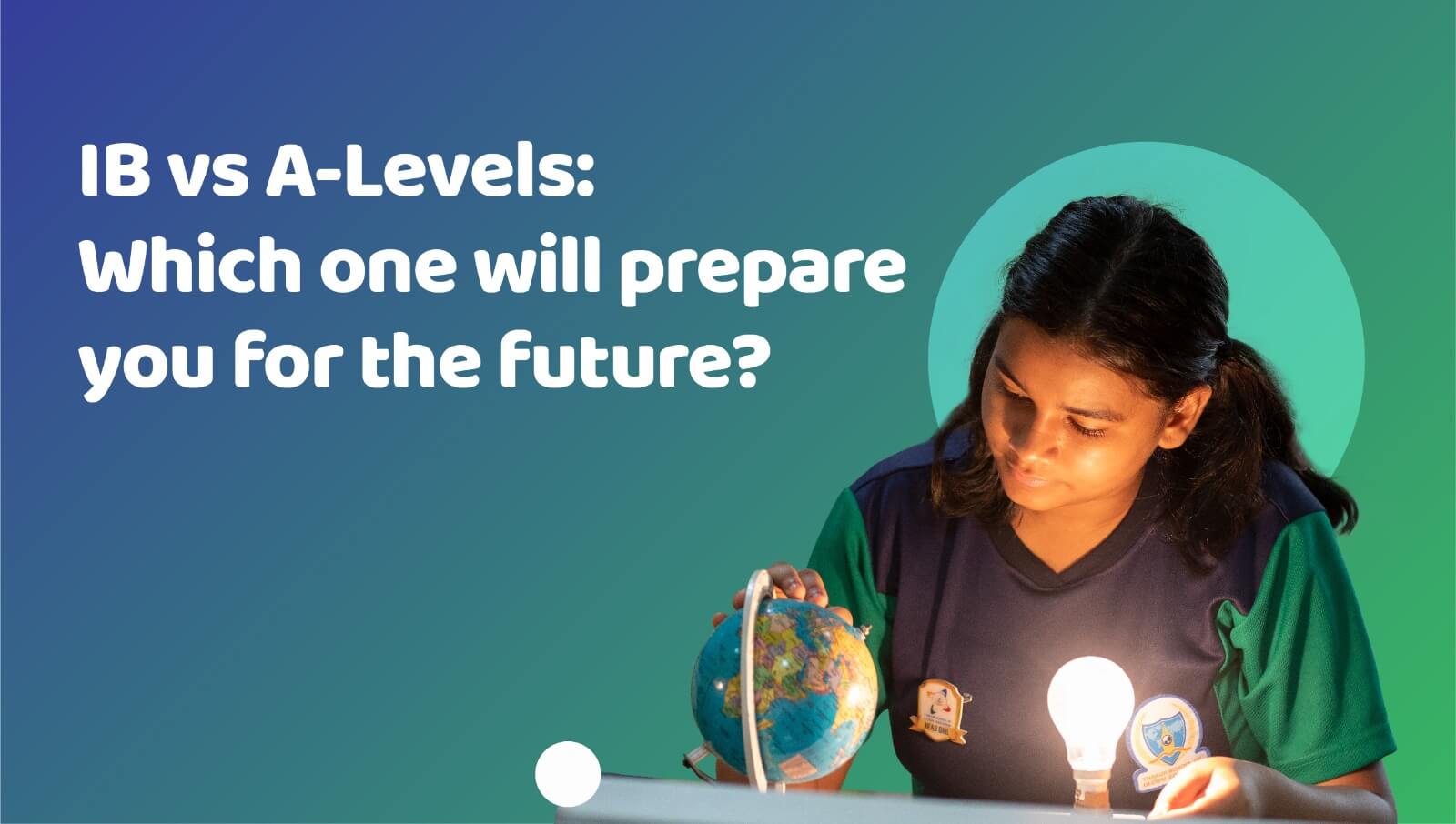When it comes to selecting the best path for your future education, the International Baccalaureate (IB) and Advanced Level (A-Levels) are two prevalent choices among high school students. Both programmes provide challenging academic courses, but there are some significant differences. In this blog, we will understand both IB and A-Level education and evaluate which one will most effectively set you up for your future endeavours.
IB:
A Holistic Approach to Education: The International Baccalaureate (IB) programme is known for its thorough and well-rounded education. Discovering multiple topics associated with languages, humanities, sciences, mathematics, and the arts, the IB curriculum promotes analytical thinking, research skills, and a global outlook. To further boost the learning quotient, the amalgamation of creativity, activity, and service (CAS) components contributes to an integrated educational experience.
A-Levels:
In-depth Specialization: A-Levels, in contrast to the IB programme, provide a more specialised approach. Students usually select fewer things to study in-depth, concentrating on their areas of interest and abilities. Students may use this approach to explore deeply into the subjects they have chosen, obtaining a complete comprehension of the content while building strong subject-specific abilities. Students with a defined job plan or those pursuing a more specialised education early on frequently select A-Levels.
Flexibility and Customization:
One of the benefits of A-Levels is the freedom they provide. Students can personalise their education as per individual requirements by selecting specific subjects based on their interests and future aspirations. This enables students to pursue specialised areas of study and possibly acquire an advantage in certain professional domains. The IB programme, on the contrary, offers a balanced curriculum that guarantees students acquire a well-rounded education across numerous subjects, which might be advantageous for individuals who are yet to pick their future routes or would rather explore other areas prior to arriving at a decision.
University Acceptance and Global Recognition:
The IB and A-Levels are both internationally recognised and approved by institutions worldwide. It should be noted, however, that recognition and acceptance may differ according to the nation and institution. Some institutions may have particular admittance criteria or preferences, whilst others emphasise the distinct characteristics that each programme provides. When making a selection, students must examine the university entrance criteria of their prospective schools as well as assess their unique talents and objectives.
Skills for the Future:
In an era of rapid technology breakthroughs and a changing employment environment, high school skills are critical in preparing children for the future. The IB program’s focus on critical thinking, research, and global awareness is in line with modern-day objectives. These abilities are beneficial to students pursuing a variety of job routes as well as those wishing to become global citizens. A-Levels, on the contrary, may provide students with in-depth topic knowledge and competence, which may be especially advantageous for those pursuing certain vocations or academic areas.
Also Read: IGCSE Vs Other Curriculums: Which One Is Right For You?
While choosing between the IB and A-Levels courses can be a task considering students’ educational routes and future opportunities, each of these curricula has significant benefits. Hence your professional ambitions and desired learning style should align before coming to a conclusion. So whether it is an IB course with holistic education or an A-level with specialization, go with the course that is in sync with your own talents, interests, and goals.





